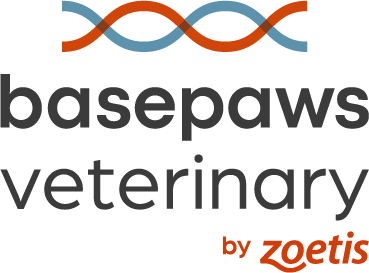
Genetic testing: the future of preventative care in veterinary medicine

Advancements in genetic and oral microbiome screening are marching forward at an accelerating pace, pushing the boundaries of preventative care to new limits.
Content submitted by BasePaws
Veterinary medicine is constantly evolving, and today’s approach to proactive care goes beyond routine preventative measures such as annual vaccinations or the prevention of fleas, ticks, and heartworm. The old adage, “an ounce of prevention is worth a pound of cure” is more relevant than ever with the increased access that veterinarians have to advanced early detection diagnostics, treatments, and preventive interventions.
Preventive medicine currently involves a multifaceted approach. By leveraging innovative technology, knowledge, and an array of products, veterinary professionals can evaluate a pet's overall health. This includes identification of potential health issues along with risk for disease to support faster diagnosis and treatment planning. With aggregate data from new diagnostic tools, veterinarians can now provide clients with individualized medicine that is focused on early detection, prevention, and evidence-based management using a pet’s risk factors and conditions to determine the best course of action.
The genetic testing industry is committed to research and discovering new knowledge that will help veterinary professionals provide individualized care for their patients. With the many pandemic-related challenges experienced by veterinary professionals, popular distance-based technologies and diagnostic tools will likely continue to be relied upon as pet parents become more involved in proactively caring for their furry family members from home. These research initiatives and direct-to-consumer products have much to offer veterinarians and their clients during and after this industry-wide transition.
Telemedicine, teletriage, teleadvice
The industry has experienced a sharp rise in virtual consultations. For better or worse, virtual care has become a way for clinics to defer non-emergencies while concentrating their limited capacity on more urgent cases. Though not all geographies have widely adopted the practice of virtual care, the advantages of telemedicine, teletriage, and teleadvice services far outweigh potential concerns. Success stories of pet parents reaching veterinary professionals in otherwise inaccessible times and locations abound, particularly when teleadvice was critical for their pet’s health in cases related to allergies, infections, general wellness, and nutrition.
The increasing availability and quality of convenient at-home tests support the early detection of dental disease, identify predispositions to genetic health conditions, and provide pet parents with personalized recommendations for at-home care, as well as what to discuss with their veterinarian.
At-home monitoring and early detection
Along with virtual care, at-home monitoring tools, such as the
For example, when considering the cost of preventive dental care, removing a single diseased tooth is more expensive than a professional dental cleaning and significantly more expensive than monthly at-home dental care. Routine at-home dental care is an important aspect of good oral health that also saves pet parents money.
Conclusion
Genetic and oral microbiome screening tests are an exciting frontier that continue to make advancements and increase their value as an additional diagnostic to improve patient health. The ability to get ahead in prevention and treatment of the diseases can lead to patients living longer and healthier lives, as well as more efficient practices. With screening results in hand, clinicians can schedule checkups tailored to what the patient is at higher risk for, and hopefully catch and treat diseases before they become untreatable.
Newsletter
From exam room tips to practice management insights, get trusted veterinary news delivered straight to your inbox—subscribe to dvm360.






